Kirill Gundyaev, Metropolitan
Smolensky and Kaliningradsky:
little-known pages of the biography.
Our hero, in the world Vladimir Mikhailovich Gundyaev, was born on November 20, 1946 in the family of a priest in Leningrad, where, after graduating high school entered the first class of the Leningrad Theological Seminary, from which he graduated in 1967. He immediately entered the first year of the Leningrad Theological Academy (LDA), actively participating in public life Russian Orthodox Church(ROC). Two years later, Metropolitan Nikodim of Leningrad and Ladoga tonsured him as a monk and immediately ordained him a hierodeacon, and a little later - a hieromonk. At the age of 23, he graduated with honors from the LDA and a year later received a candidate of theology degree. Remained as a professorial fellow, teacher of dogmatic theology and assistant inspector of the LDA. In 1970, he became the personal secretary of Metropolitan Nikodim and actively traveled around the world, incarrying out various foreign policy assignments of the Patriarchate.
And here is his first star date - December 26, 1974, when he, at the age of 28, was appointedpresentation of Bishop Nicodemus as the rector of the LDA and the seminary. In those years, I myself was a blue-eyed, provincial seminarian who entered there after the army, and, as my comrades said, I had a naturally athletic figure and a shock of blond hair on my head. Once meeting me in the corridor, Fr. Kirill began asking how I was living in the hostel and whether there were any complaints. Having learned that everything was in order, he told me to come to his office at 19:00. Just like a minute I was at his door, but I noticed that the secretary was no longer there, and the rector was waiting for me behind the slightly open door of his office. He took a bottle of French Napoleon cognac and a plate of black caviar from the safe, inviting me to join the God-given meal. Can you imagine what a luxury this was in scarce Soviet times, so it’s understandable that it took my breath away! When we were halfway through the bottle, he told me to take off my clothes so he could make sure I didn't lose weight on my seminar scholarship. Out of surprise, my reproductive organ shrank into a lump at the “half past six” position, but oh. Kirill approached me, fell on his knees, as if in front of the Holy Image, and began to kiss it passionately. He soon achieved what he wanted and swallowed my seed with obvious pleasure. Then he asked me to do the same to him, and I, overcoming disgust due to inexperience, helped him achieve orgasm. Having straightened his suit and finished his cognac, Fr. Kirill said that “with this” much can be achieved in our environment, adding that he owes his position to Fr. Nicodemus, to whom he also provided numerous delicate services of an intimate nature as a trusted secretary. Later, I learned from many other seminarians that they had also visited the rector under similar circumstances, and they all noted how tender and quivering the Father Rector’s lips were.
But then Vladyka Nikodim dies, and the new Metropolitan Anthony does not welcome same-sex relationships and tries to expel Fr. Kirill from Leningrad, arranging for him a “promotion” to the Smolensk archbishopric see in 1984. But nothing lasts forever under the moon and even patriarchs are mortal, and therefore soon Fr. Kirill moves to Moscow, where his second star date comes, when, by the Resolution of the Holy Synod on November 14, 1989, he is appointed Chairman of the Department of External Church Relations and a permanent member of the Holy Synod ex officio, and two years later becomes metropolitan. He is 45 years old and full of strength and commercial aspirations, and then, quite opportunely, the country collapsed and the market economy began to gain momentum. During these years, through the Department of External Relations of the Russian Orthodox Church, headed by Bishop Kirill, instead of humanitarian and charitable assistance, duty-free cigarettes and alcohol poured into the country under a pre-registered license (for which he received the nickname “tobacco metropolitan”). Gundyaev becomes the richest hierarch of the Russian Orthodox Church, a billionaire, owner of luxurious mansions abroad, a member of the board of directors of the Peresvet bank, counting goods and money from Monday to Friday, and on clear Sundays, radiant eyes reading spiritual instructions to lost Russians on central television channels.
And with all his exorbitant wealth, he does not disdain “little things” when he goes toOnce on a short monitoring visit to the Republic of South Africa to see how construction was progressing in the five-domed church of the Russian Orthodox Church with multimillion-dollar grants from Gazprom, he graciously “allowed” to pay all expenses for the trip for almost 80 thousand dollars from grant funds.
But now his ambitious aspirations are aimed at the patriarchal throne, which, however, can be greatly hampered by the numerous sins of his youth, which are well known to his colleagues, but who try not to touch upon issues of same-sex love,since “a thief’s hat is on fire.” However, Fr. Kirill at every convenient and inconvenientcase, he exaggerates this topic, talking about “damage to the God-created nature of man.” Even while speaking recently on television about the reunification of churches, he went completely off-topic three times and talked about the mortal sin of Sodom.
Everything has happened in the history of the Fatherland, but for a super-rich man, an unscrupulous businessman and an obvious sodomite to become the Patriarch of Holy Rus'! This, God knows, has never happened yet.
C seminarist.

Start of business V.M. Gundyaev was founded in 1992-1994. The most extensive dossier on this business was compiled by Doctor of Historical Sciences Sergei Bychkov, who published dozens of articles, mainly about the tobacco business of the future patriarch. None of his publications were officially refuted; in many ways, Kirill admitted that the facts collected by Bychkov were true.
In addition to the villa in Switzerland, the Tobacco Ski-Patriarch has palaces in Peredelkino, in the Danilov Monastery, in Gelendzhik, next to Putin’s palace, and a penthouse with a terrace in the House on the Embankment - overlooking the Cathedral of Christ the Savior:
About how the High Priest of Putin’s Reich, Patriarch Kirill (he is already a KGB agent Mikhailov), amassed his billion-dollar capital on speculation in tobacco, alcohol and oil (exempt from taxes and excise taxes) in the dashing 90s, how he, the head of the gangster empire of the Russian Orthodox Church, eliminated and eliminated its competitors, many have already written.
Cigarettes
In 1993, with the participation of the Moscow Patriarchate, the Nika financial and trading group arose, the vice-president of which was Archpriest Vladimir Veriga, commercial director of the Department for External Church Relations (DECR MP), which was headed by Kirill. A year later, under the Government of the Russian Federation and under the DECR MP, two “parallel” commissions on humanitarian aid appeared: the first decided what aid could be exempt from taxes and excise taxes, and the second imported this aid through the church and sold it to commercial structures. Thus, most tax-exempt aid was distributed through the regular trade network, at regular market prices. Through this channel, in 1996 alone, the DECR MP imported about 8 billion cigarettes into the country (data from the government commission on humanitarian aid).
This caused serious damage to the “tobacco kings” of that time, who were forced to pay duties and excise taxes and therefore lost in the competition of the DECR MP; it is believed that they “ordered” an information campaign to expose Kirill’s business. According to Bychkov, when Kirill decided to leave this business, more than $50 million worth of “church” cigarettes remained in customs warehouses. During the criminal war, in particular, an assistant to deputy Zhirinovsky, a certain Zen, was killed for these cigarettes.
And here is a letter from the State Customs Committee of the Russian Federation to the Moscow Customs Administration dated February 8, 1997, regarding “church” cigarettes: “In connection with the appeal of the Commission on International Humanitarian and Technical Assistance under the Government of the Russian Federation and the decision of the Chairman of the Government dated January 29, 1997 No. VC-P22/38 authorizes customs clearance of tobacco products in the prescribed manner with payment only of excise duty that entered the customs territory before 01/01/97, in accordance with the decision of the above-mentioned Commission.”
So, in fact, since then Metropolitan Kirill has been assigned a new title - “Tobacco” (however, now he is no longer called that). Now it is customary to call it “Lyzhneg” - with light hand Orthodox bloggers who drew attention to the enormous importance in the life and work of Kirill of his passion for alpine skiing (this hobby is served by a villa in Switzerland and a private jet, and in Krasnaya Polyana it helps to consolidate informal relationships with strongmen of the world this).
What adds piquancy to Kirill’s tobacco business is the fact that in Orthodoxy smoking is considered a sin: it is actually detrimental to human health and life. Kirill himself tried to justify his participation in this business: “The people who were involved in this did not know what to do: burn these cigarettes or send them back? We turned to the government, and it made a decision: recognize this as a humanitarian cargo and provide the opportunity to implement it.” Government representatives categorically denied this information, after which Patriarch Alexy II liquidated the DECR MP commission and created a new ROC MP Commission on humanitarian assistance, headed by Bishop Alexy (Frolov).
Oil
But let us return to the “dashing years” when the “curvature of our history” arose. In addition to the aforementioned Nika Fund, DECR MP was then the founder of the commercial bank Peresvet, JSC International Economic Cooperation (IEC), JSC Free People's Television (SNT) and a number of other structures. Kirill’s most profitable business after 1996 was the export of oil through the MES, which was exempt from customs duties at the request of Alexy II. Kirill was represented at the MES by Bishop Victor (Pyankov), who now lives as a private citizen in the USA. The company's annual turnover in 1997 was about $2 billion.
Due to the confidentiality of this information, it is now difficult to understand whether Kirill continues to participate in the oil business, but there is one very eloquent fact. A few days before the start of the US military operation against Saddam Hussein, Kirill’s deputy, Bishop Feofan (Ashurkov), flew to Iraq.
Seafood
According to Portal-Credo.Ru, in 2000, information was made public about Metropolitan Kirill’s attempts to penetrate the market of marine biological resources (caviar, crabs, seafood) - the relevant government structures allocated quotas for catching Kamchatka fish to the company founded by the hierarch (JSC Region). crab and shrimp (total volume - more than 4 thousand tons). According to Kaliningrad journalists, Metropolitan Kirill, as the ruling bishop of the ROC MP diocese in the Kaliningrad region, participated in an automobile joint venture in Kaliningrad. It is characteristic that Kirill, even after becoming patriarch, did not appoint a diocesan bishop to the Kaliningrad see, leaving it under his direct control.
Luxury
In 2004, Nikolai Mitrokhin, a researcher at the Center for Shadow Economy Research at the Russian State University for the Humanities, published a monograph on the shadow economic activities of the Russian Orthodox Church MP. The value of the assets controlled by Metropolitan Kirill was estimated in this work at $1.5 billion. Two years later, journalists from Moscow News tried to count the assets of the head of the church Ministry of Foreign Affairs and came to the conclusion that they already amounted to $4 billion.
And according to The New Times, in 2002, Metropolitan Kirill bought a penthouse in the “House on the Embankment” overlooking the Cathedral of Christ the Savior. This, by the way, is “the only apartment in Moscow registered specifically in the name of the metropolitan by his secular surname Gundyaev, about which there is a corresponding entry in the cadastral register.”
Another attribute of this life that has become the subject of widespread discussion is a Breguet watch worth about 30 thousand euros, which Ukrainian journalists photographed on the patriarch’s left hand next to the monastic rosary. This happened the day after Kirill pompously broadcast in live main Ukrainian TV channels: “It is very important to learn Christian asceticism... Asceticism is the ability to regulate one’s consumption... This is a person’s victory over lust, over passions, over instinct. And it is important that both rich and poor possess this quality.”
The luxurious motorcades of Patriarch Kirill and the security services from the Federal Protective Service that he uses have become the talk of the town. In Moscow, when the patriarch is driving, all the streets along his route are blocked, which, naturally, causes mass indignation among car owners. In Ukraine, Kirill’s half-kilometer motorcades were completely shocking local residents: in the neighboring country, even the president drives much more modestly.
We must, however, give Kirill his due: for official visits he charters planes from Transaero, and uses his personal fleet only for personal purposes.
A separate and almost inexhaustible topic is the palaces and residences of the patriarch. Kirill strives to keep up with the top officials of the state in this matter. The newly built palace in Peredelkino was considered his permanent residential residence, for which several houses of local residents were demolished. From the windows of trains in the Kyiv direction, it looks like a large Russian tower - like the Terem Palace in the Kremlin. Kirill doesn’t like living there: he’s worried about people passing next door railway. Therefore, the current patriarch ordered to redecorate the palace in the Danilov Monastery, which did not look poor before. The construction of the patriarchal palace in Gelendzhik, next to the legendary “Putin’s palace” in Praskoveevka, was not without scandals. As in the case of Putin, the patriarch’s palace primarily aroused the indignation of local environmentalists: it was built on the territory of a nature reserve, during construction many trees listed in the Red Book were cut down, and the palace territory blocked access to the sea for local residents. There are patriarchal residences in all more or less large monasteries in Russia.
Export of capital is blessed
But let's return to the Danilov Monastery. After the head of Putin’s headquarters, Govorukhin, uttered wonderful, highly spiritual words that under Putin, corruption in Russia has finally acquired civilized forms, it no longer seems strange that Patriarch Kirill welcomes the outflow of capital from Russia (after all, his own savings are not kept in his homeland) . “The fact,” Kirill told Putin, “that today in Spain, when it is one of the prosperous countries, real estate is being sold en masse by Spaniards and bought en masse by Russians is a very good signal to the whole world. A country that is poor, that is in crisis, cannot afford what rich countries do not allow today.”
The phrase, although confusing, is clear that, from a Christian point of view, we must identify the “beautiful life” of the nouveau riche abroad with the glory and wealth of our country.
As Kirill prophesies, “Sergianism” (the policy of complete subordination of the Church to power), which Chekist Putin spoke so warmly about in his speech, is once again demonstrating its advantages over Christian confession and martyrdom. To which the patriarch, whose earthly life is protected by FSO employees, can hardly strive so much.
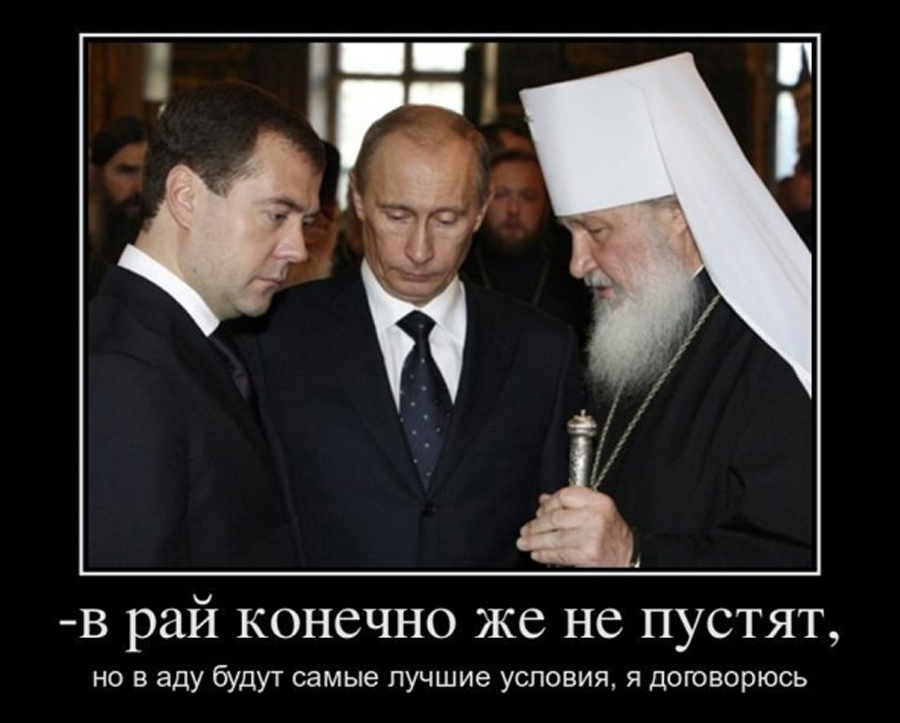
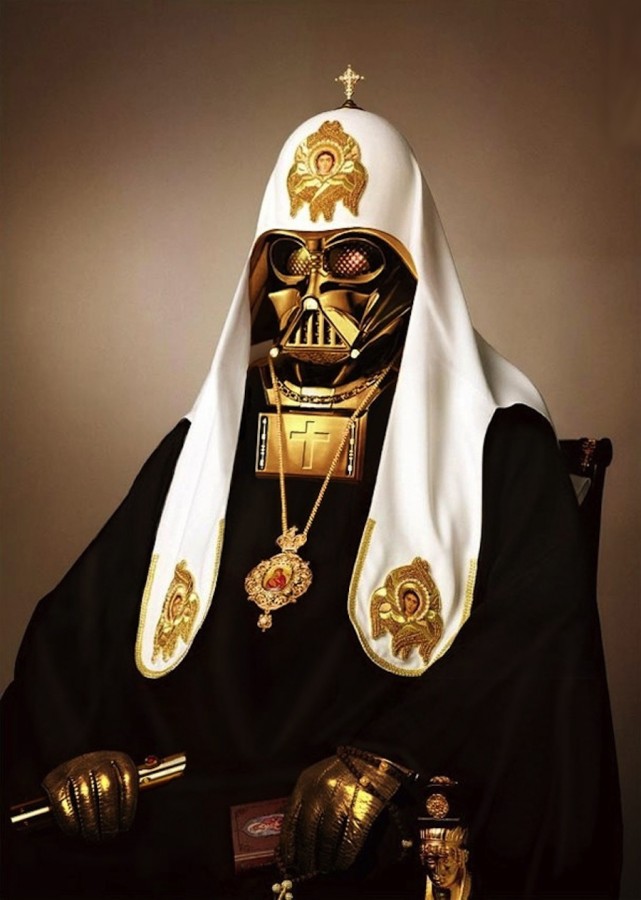
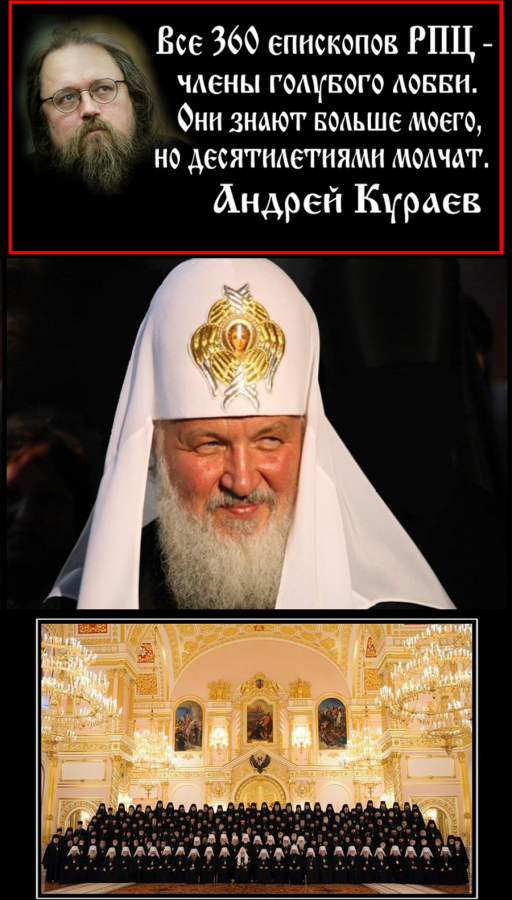


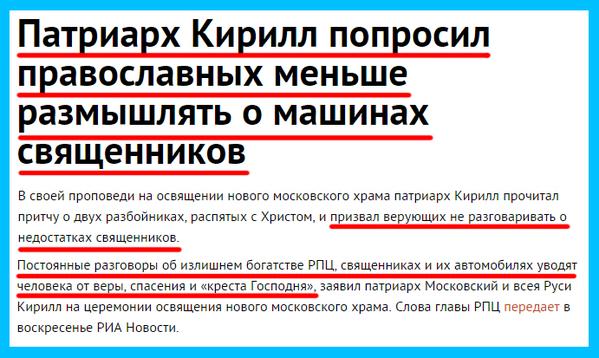
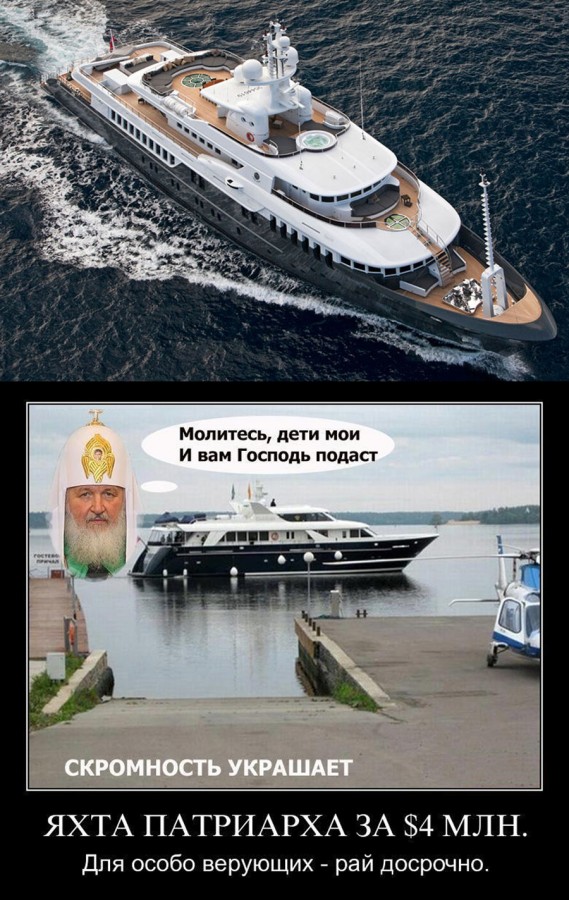
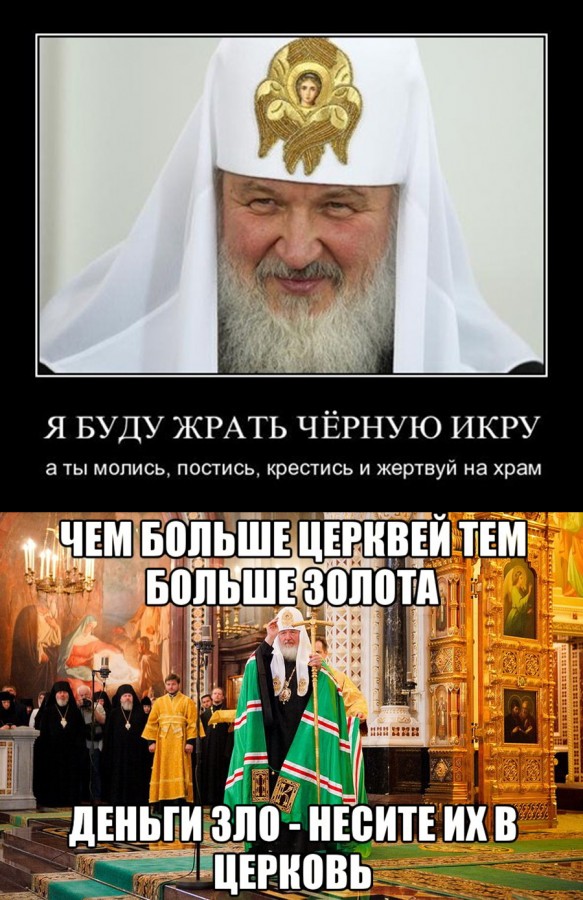

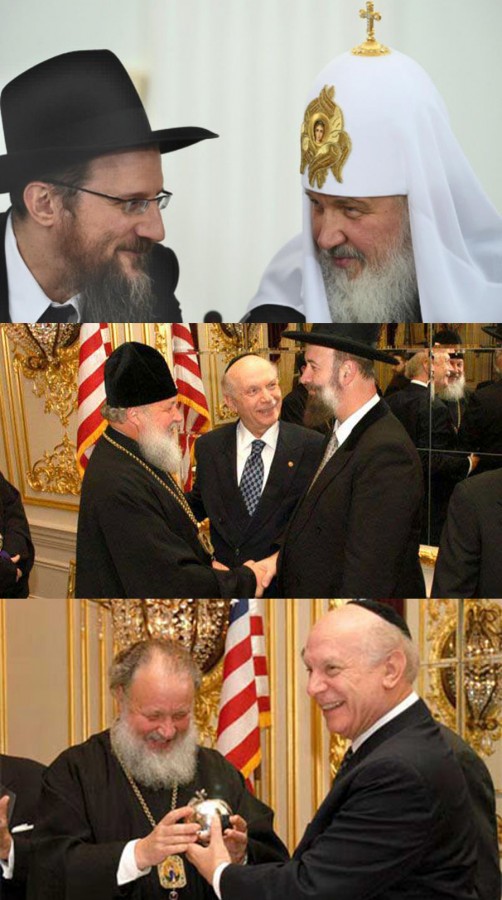
Gundyaev's hobbies are atypical for a church environment - alpine skiing, purebred dogs, water skiing and high-speed driving.
Versions: Patriarch Kirill – KGB agent, billionaire and Orthodox “hawk”
"Chairman of the Department for External Church Relations of the Moscow Patriarchate, permanent member of the Holy Synod, Metropolitan of Smolensk and Kaliningrad. Honorary and full member of many academies. Most Orthodox Christians knew no more than the brief details given above about a citizen of the Russian Federation named Kirill Gundyaev, who became the Patriarch of Moscow and All Rus' .
Indeed, church ministers are not used to revealing details of their personal lives, views and preferences. In the case of Kirill, we have the exact opposite situation. He not only did not hide his radical religious views, but also actively disseminated them both in Russia and abroad. He became the first church hierarch of Russia to undertake the hosting of an original television program. “The Word of the Shepherd”, together with its permanent presenter and one of the main candidates for the patriarchal throne, thanks to ORT, was regularly watched by millions of believers.
The ideas he put forward revolved around transforming the Church into a real state within a state, providing for it financially, politically and organizationally. It was Kirill who demanded that part of Russians’ income taxes be transferred to the budget of religious organizations, including the Russian Orthodox Church. It was he who began to actively promote the active intervention of the Church in secular life and politics, including for its influence on the authorities from the position of “The Priesthood is higher than the Kingdom.”
The only thing Kirill has already managed to achieve is the creation of a paramilitary “Orthodox corps” within the pro-Kremlin youth movement “Nashi”. During the bishops’ council in the Cathedral of Christ the Savior (Moscow), the “nashi” together with the police guarded nearby areas, did not allow supporters of the disgraced Metropolitan Diomede out of the metro and interfered with the work of journalists.
Delivering a solemn speech on the occasion of his enthronement, the Patriarch called himself “the defender of the external canonical boundaries of the Church.”
“This ministry takes on special significance, which arose after the formation of independent states in the space of historical Rus'. Respecting their sovereignty and caring for the welfare of each of these states, the patriarch is at the same time called upon to take care of the preservation and strengthening of spiritual ties between the peoples inhabiting them in the name of preserving the system of values that the united Orthodox civilization Holy Rus',” the FORUM.msk portal quotes the words of the new head of the Russian Orthodox Church.
Considering his task and concern for the unity of universal Orthodoxy, he assured that he would always be open “to dialogue with sister churches and to joint efforts that would help strengthen and improve pan-Orthodox cooperation and achieve greater coordination of pastoral and missionary efforts.”
It is characteristic that only one president listened to the words of the new patriarch about the unity of the canonical territory - Dmitry Medvedev. Apparently, the refusal of the struggle for the patriarchal throne of Kyiv Metropolitan Vladimir will mean that the Russian Orthodox Church continues its path to the state church of the Russian Federation, and nothing more. Medvedev himself came up with this vision. He clearly doesn’t like Kirill’s imperial plans. “Work between the state and the church will be in demand in the name of the development of our country and all Orthodox peoples,” the Russian President noted dryly.
Putin's fellow countryman
According to the official biography, the patriarch was born on November 20, 1946 in Leningrad into a family of repressed ministers of the Church. Hereditary priest.
At school, due to religious convictions, he did not join the Pioneers or the Komsomol. He became the hero of an anti-religious publication in a city newspaper.
At the age of 15 he left school and worked on a geological expedition.
1969 – graduated with honors from the Leningrad Theological Academy.
On June 1, 1970, he received a candidate of theology degree for the essay “The formation and development of the church hierarchy and the teaching of the Orthodox Church about its gracious character.”
On April 3, 1969, Metropolitan Nikodim (Rotov) of Leningrad and Novgorod was tonsured a monk, on April 7, 1969 he was ordained a hierodeacon, and on June 1, 1969 - a hieromonk.
After graduating from the academy, he remained at the LDA as a professorial fellow, teacher of dogmatic theology and assistant inspector of the LDA. Since August 30, 1970 - personal secretary of Metropolitan Nikodim (Rotov), chairman of the department for external church relations (DECR). From this moment on, Kirill becomes a peculiar business card ROC for Western countries. According to his opponents, the patriarch's foreign visits were directly related to his work in the KGB of the USSR. In this department, Gundyaev was known under the pseudonym “Mikhailov”.
In 1972, he accompanied Patriarch Pimen on his trip to the countries of the Middle East, as well as to Bulgaria, Yugoslavia, Greece and Romania.
In November 1975, at the Ecumenical Assembly in Nairobi, he condemned the letter of the dissident, Fr. Gleb Yakunin about the persecution of believers in the USSR and denied the facts of violation of the rights of believers.
From November 18, 1976 to October 12, 1978 - Deputy Patriarchal Exarch Western Europe(according to a report dated November 4, 1976, from Metropolitan Nikodim (Rotov), Patriarchal Exarch of Western Europe, about the need, in connection with the fifth heart attack, to appoint a deputy for him - with the proposal of the candidacy of Kirill).
On October 12, 1978, he was relieved of his post as Deputy Patriarchal Exarch of Western Europe and appointed manager of the patriarchal parishes in Finland (he looked after them until 1984).
From March 27 to 29, 1979, he participated in the Consultation “Responsibility of the Churches of the USSR and the USA for Disarmament.”
From July 12 to July 24 of the same year, he headed the delegation of the Russian Orthodox Church at the World Conference “Faith, Science and the Future” in Cambridge (USA).
On December 26, 1984 he was appointed Archbishop of Smolensk and Vyazemsky. As the online publication Stringer notes, the transfer to Smolensk was a demotion for Archbishop Kirill and indicated disgrace on the part of state supervisory authorities.
“...There are various rumors about the reasons why he fell out of favor. Some associate this with his reform activity in the sphere of worship: he not only practiced the use of the Russian language in worship, but also served Vespers in the evening, and not in the morning, as is still customary in the Russian Orthodox Church. Another reason for the removal of Bishop Kirill from the “northern capital” of Russia is his refusal to vote against the resolution of the Central Committee of the World Council of Churches, which condemned the entry of Soviet troops into Afghanistan. Meanwhile, he didn’t vote “for” either, he just “abstained,” which, however, at that time was also almost a feat,” wrote Natalia Babasyan in the article “The Star of Metropolitan Kirill” (Russian Journal, 04/01/1999) .
Kirill himself believes that he fell victim to a closed resolution of the CPSU Central Committee on the fight against religiosity, adopted on the eve of the celebration of the 1000th anniversary of the Baptism of Rus', for excessive activity as rector of the Theological Academy: during his rectorship, access to the LDA was opened for graduates of secular universities, and in 1978, a regency department was created, which women could also enroll in.
Since November 14, 1989 - Chairman of the Department for External Church Relations (DECR) and permanent member of the Holy Synod. This appointment actually indicated the removal of state disgrace from him.
On February 25, 1991 he was elevated to the rank of metropolitan.
Putin's colleague
However, if you trust the reports of the Russian and world press, not everything in Kirill’s life is so sacrificial and heroic.
In 1996, he joined the board of directors of Peresvet Bank, which serves the financial interests of the Patriarchate. According to Moscow journalists, from that moment the financial and property abuses of the metropolitan began.
In September 1996, the Moscow News newspaper (N34) published a report that the DECR, headed by Metropolitan Kirill, in 1994-96. organized in 1994-96 the import of excisable goods (primarily cigarettes) bypassing customs duties, under the guise of humanitarian aid, in amounts of tens of millions of dollars and in quantities of tens of thousands of tons. The accusations were supported by other popular secular newspapers (in particular, Moskovsky Komsomolets - journalist Sergei Bychkov). It is believed that the secret initiator of these accusations was the then manager of the affairs of the MP, Archbishop of Solnechnogorsk Sergius (Fomin). To investigate these reports, an internal church commission was created headed by Archbishop Sergius (Fomin).
However, the position of Metropolitan Kirill, who denied the deliberate importation of cigarettes into the country and said that the church could not refuse the gift imposed on it, was supported by the 1997 Council of Bishops of the Russian Orthodox Church. The church managed to earn several hundred million dollars, and Kirill’s fortune was then estimated at one and a half billion dollars. Currently, it reaches, according to some sources, 4 billion.
In May 2001, the same Moskovsky Komsomolets journalist Sergei Bychkov published an article “Metropolitan from a snuffbox”, in which he repeated previous accusations against Metropolitan Kirill regarding the import of tobacco, and also for the first time publicly identified Kirill with the WCC figure “agent Mikhailov”, mentioned in previously published materials of the Supreme Council commission (“Yakunin-Ponomarev commission”) about connections between the KGB and the Russian Orthodox Church in Soviet times.
Lives in the official residence of the DECR in Serebryany Bor (Moscow).
In 2002, I bought a penthouse in the House on the Embankment overlooking the Cathedral of Christ the Savior (the apartment is registered to Vladimir Mikhailovich Gundyaev, “about which there is a corresponding entry in the cadastral register” (The New Times. No. 50 of December 15, 2008).
“Information about the Metropolitan’s purchase of a villa in Switzerland” appeared in the media (ibid.).
According to Alexander Soldatov, editor-in-chief of the authoritative publication Portal-Credo.Ru, dedicated to religious and church life, Metropolitan Kirill is an active and experienced businessman. His interests include trading on the stock exchange, oil business, trading in metals and cars.
On his website “Antikompromat”, political scientist and researcher Vladimir Pribylovsky mentions the agent “Mikhailov” in the materials of the Yakunin-Ponomarev commission.
January 1973: “Agents of the KGB bodies “Master” and “Mikhailov” were sent to Thailand and India to participate in the work of the WCC (World Council of Churches - RUpor). These agents had a beneficial influence on the work of the Council and presented materials of operational interest about the situation in the WCC and characterizing data on individual figures. (...) Deputy Head of the 4th Department of the 5th Directorate of the KGB under the Council of Ministers of the USSR, Lieutenant Colonel Fitsev.”
The private determination of the Supreme Council commission also stated: “The commission draws the attention of the leadership of the Russian Orthodox Church to the unconstitutional use by the Central Committee of the CPSU and the KGB of the USSR of a number of church bodies for their own purposes by recruiting and sending KGB agents to them. Thus, through the department of external church relations, agents went abroad and carried out tasks from the KGB leadership, designated by the nicknames “Svyatoslav”, “Alamant”, “Mikhailov”, “Topaz”, “Nesterovich”, “Kuznetsov”, “Ognev”, “Esaulenko” "and others. The nature of the orders they carry out testifies to the inseparability of this department from the state, to its transformation into a hidden center of KGB agents among believers.”
Gundyaev's hobbies are not typical for a church environment - he is a fan of alpine skiing (for this he bought himself a rather large house in Switzerland), purebred dogs, water skiing and high-speed driving.
According to Ogonyok journalists, Kirill “has had the warmest relationship for 30 years now” with Lydia Mikhailovna Leonova, the daughter of the cook of the Leningrad Regional Committee of the CPSU.